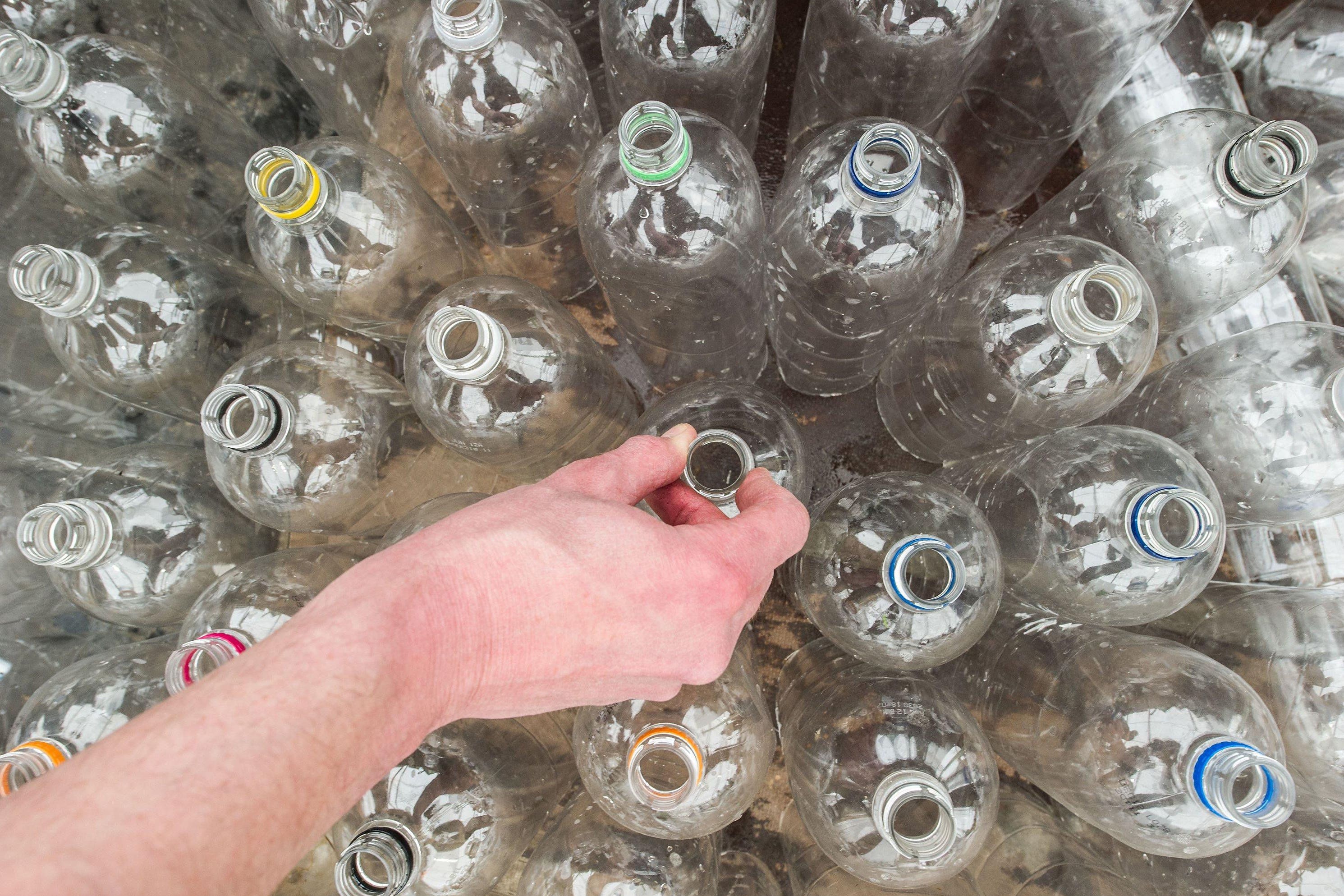HMRC collects £276m from plastic packaging tax in first year
The amount was £41m more than the Treasury predicted for 2022/23.

The Government collected more than £270 million from the plastic packaging tax (PPT) during its first year, official figures show.
HM Revenue and Customs (HMRC) released the first annual update on the PTT on Thursday.
The tax was introduced in April 2022 as a £200 per tonne levy placed on plastic packaging with less than 30% recycled content.
It aims to provide an economic incentive to use recycled plastic in packaging as well as stimulate an uptake in recycling and collection of plastic waste.
We need to see more companies using recycled materials rather than virgin, as this is good both for our environment and supporting jobs and businesses
The HMRC report shows that receipts for the financial year of April 2022/23 totalled £276 million.
It was £41m more than the Treasury predicted after it forecast receipts of £235 million from an estimated 20,000 manufacturers and importers for 2022/2023.
Other statistics released by HMRC show that 4,142 businesses had registered to the PPT as of August 8 2023.
Of the total plastic packaging manufactured in and imported into the UK in 2022/23, 39% was declared as taxable under the PPT, HMRC said.
A further 40% was declared as packaging with 30% or more recycled plastic, and 21% as either exported, intended for export or converted.
Of the total plastic packaging declared, 52% was manufactured in the UK and 48% was imported into the UK.
The tax was raised to £210.82 per tonne as of April 1 2023.
Bosses in the recycling sector welcomed the update but called for the Government to do more to accelerate the transition towards a circular economy.
Stuart Foster, chief executive of Recoup, a charity which provides guidance on plastics recycling, said the Government should be ringfencing the money to develop recycling and circular economy systems.
He said: “It seems crazy that money raised through a tax that has been designed to encourage the use of recycled content in plastic packaging could not, at least in part, be used to help stimulate the very markets it is trying to develop and support recycled content verification systems.”
Mr Foster said the standard response to the argument is “this is not how taxes work” but argued that the PPT was introduced as an environmental tax to galvanise the supply of recycled plastic and to incentivise firms to use it.
“Allocating even some of the many millions collected to help develop systems would accelerate this development and achieve its aims,” he said.
Meanwhile, Paul Sanderson, chief executive of the Recycling Association trade body, said the tax should be part of the overall rollout of Extended Producer Responsibility, a scheme that will ensure manufacturers pay the cost of recycling their packaging, which has been deferred by the Government.
The report demonstrates the positive progress the industry has made with 40% of plastic packaging exempt from the levy because it was manufactured with over 30% recycled content
He said PPT is “doing its job” but added: “Markets for recycled plastics are challenging at the moment and there is a lack of demand.
“We need to see more companies using recycled materials rather than virgin, as this is good both for our environment and supporting jobs and businesses.
“The plastic packaging tax should also be part of the overall rollout of Extended Producer Responsibility and consistency of collections, and it is disappointing that these have been delayed by the Government.
“We need to get on with rolling out these programmes that will make it easier for people to recycle at home, while also building a much stronger recycling industry.”
Meanwhile, Patrick Brighty, recycling policy adviser at Environmental Services Association, said: “The publication of this data underpins how (the PPT) has provided an important demand-side measure to support plastics recycling.
“However, the data also underlines that, with oil prices having fallen, too many producers are opting to use new plastics in their packaging instead of recycled content.
“What’s more, as the UK introduces mandatory collection of a wider variety of plastic packaging materials through the Government’s forthcoming Collection and Packaging Reforms, the PPT at its current level will fall short.
“Government must therefore look to apply a long-term escalator to the PPT – increasing both the tax rate and the minimum recycled content threshold over time.”
Steve Gough, chief executive at environmental compliance scheme Valpak, said: “The inaugural report on PPT shines a useful spotlight on the current state of the plastic packaging market such as the extent to which plastic packaging is imported into the UK.
“The report also demonstrates the positive progress the industry has made with 40% of plastic packaging exempt from the levy because it was manufactured with over 30% recycled content.
“With over a year since the tax was introduced as well as further innovation and investment in long-term sustainable packaging solutions, we hope to see further progress over the coming years as we accelerate the transition to a circular economy.”
Subscribe to Independent Premium to bookmark this article
Want to bookmark your favourite articles and stories to read or reference later? Start your Independent Premium subscription today.
